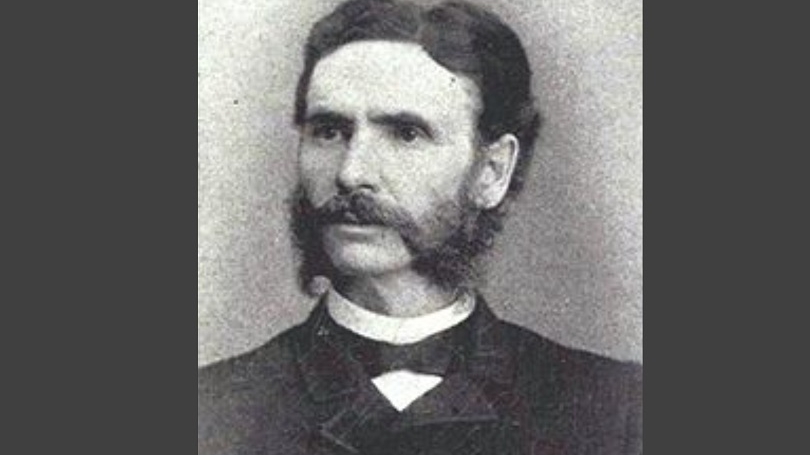
- Public Policy
- Leadership
- Funding
- News & Events
- About the Center
Back to Top Nav
Back to Top Nav
Back to Top Nav
Back to Top Nav
This article is part of a series recognizing Dartmouth Alumni who have served in public office and demonstrated their commitment to the ideals of public service, leadership, and civic engagement.
Samuel Everett Pingree, Dartmouth class of 1857, was known in all areas of his life for his dedication: he was awarded the Medal of the Legion of Honor for his service in the civil war, he held the record for the longest service rendered to his community of Hartford, Vermont, and he was heavily involved with the alumni of the college, leading the procession of alumni at graduation for many years because he was always the oldest alumni present. As governor of Vermont, he earned the title of Vermont’s “grand old man,” a fitting summation of all that he did for the northeast.
Born in Salisbury, New Hampshire in 1832, Pingree spent his whole life in New Hampshire and Vermont, graduating from Dartmouth in 1857, earning a law degree from Norwich University and gaining admittance to the Vermont bar in 1859. He settled in Hartford and worked as a lawyer and held the position of town clerk from 1860 until his death in 1922.
In 1861, at the beginning of the civil war, Pingree enlisted as a private in the military. He would eventually rise through the ranks to become lieutenant colonel, leading his troops in many notable battles, including Antietam and Fredericksburg. At the battle of Lee’s Mills in 1862, he was so severely injured that he was reported as dead, yet he still returned to fight, and for this bravery and for the leadership he showed in leading his troops in battle, he was awarded the Medal of the Legion of Honor by Congress.
Following his service, Pingree returned to his positions in Hartford, and served as the State’s Attorney for Vermont from 1866 to 1869. He was also a delegate to the 1868 Democratic National Convention responsible for nominating Ulysses S Grant. Politically, Pingree was a member of the Republican Party, but his own personal views were more liberal and democratic. In 1882, Pingree was appointed lieutenant governor and served for two years before being nominated for and elected governor in 1884. As governor, he focused heavily on education, increasing the number of weeks of school each year and increasing the town systems for schools. He also inaugurated Arbor Day on May 1, 1885, making Vermont the first state east of the Mississippi to recognize and celebrate the holiday. During his term he also advocated for a law against the adulteration of maple syrup and honey, which would prevent the watering down of those products with beet sugar and other cheaper substitutes.
Pingree retired from the governorship to return to his work as a lawyer and town clerk. He also served as president of the White River Savings Bank from 1887 to 1912, chairman of the Board of Railroad Commissioners from 1886 to 1894, and became more involved with Dartmouth as an alumnus. While at Dartmouth, he was a member of Phi Beta Kappa and was secretary of his class, as well as a founding member of the Pi chapter of Delta Kappa Epsilon. As an alumnus, Pingree represented the class of 1857 in the Class Secretaries’ Association and led the procession of alumni at graduation. With a remarkable ethic that connected his military, political, and judicial service, Pingree remained connected and committed to all of his interests for the entirety of his life.
Submitted by Bella Horton '20, Student Researcher for the Dartmouth College Public Service Legacy Project.